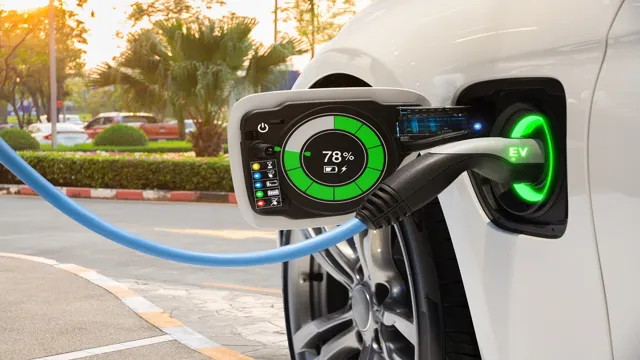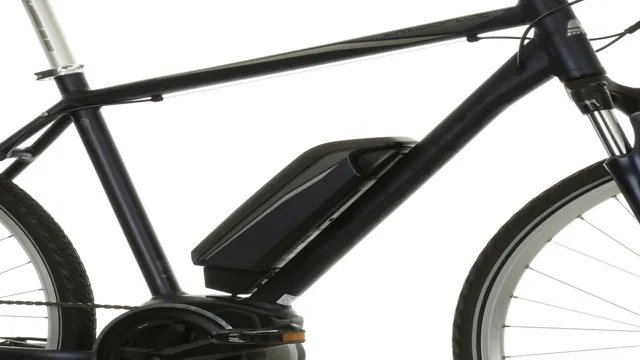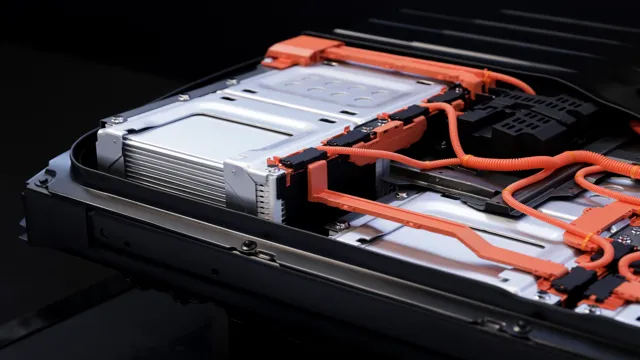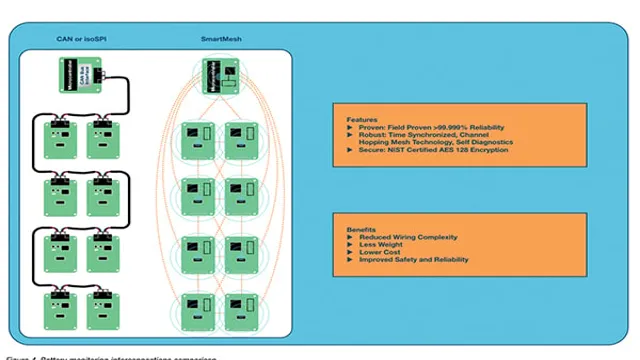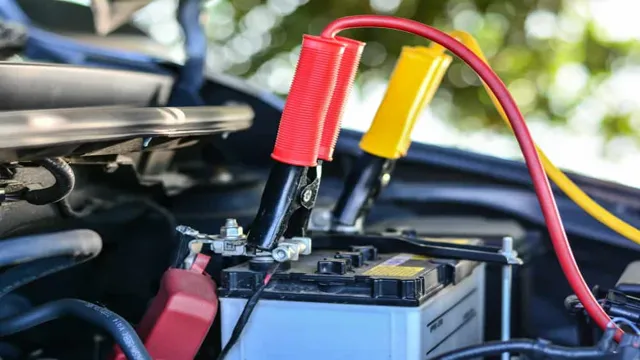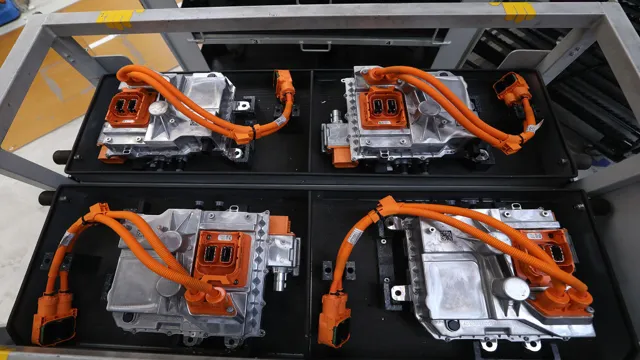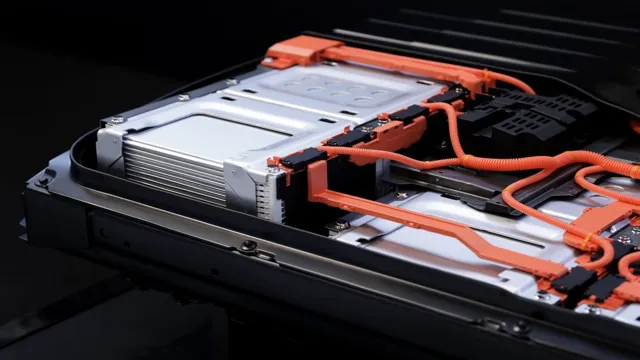Unleashing the Potential of Your Electric Car: Can You Use It as a Home Battery?
Electric cars have been a trend in recent years, and for good reason. They are eco-friendly, cost-effective, and help reduce carbon emissions that contribute to climate change. But have you ever thought about using your electric car as a home battery? Yes, you heard that right – your electric vehicle can be utilized as a secondary power source at home.
The concept of using electric cars as home batteries is gaining popularity, and for a good reason. It helps store excess energy generated by your vehicle and utilize it to power your home during peak hours or power outages. Imagine being able to power your home using the energy stored in your electric car’s battery while simultaneously reducing your electricity bills and carbon footprint.
It’s a win-win situation! But how exactly does this work? Most electric cars come equipped with sophisticated software and hardware that make it possible to charge and discharge their batteries using a charging station, also called a bidirectional charger. This technology allows electric vehicles to not only consume energy but also to store and send it back to the local power grid or your home as a backup power source. Using an electric car as a home battery is a novel approach that can help individuals reduce their carbon footprint and save money on their energy bills.
It’s a great way to utilize the full potential of your electric vehicle, and we can expect to see more homeowners adopting this innovative practice in the near future. So, are you ready to take the next step towards a more sustainable lifestyle by incorporating your electric car into your home energy system?
Overview
Yes, you can use an electric car as a home battery. This process is called vehicle-to-home (V2H) technology and enables the electric car to provide power to your home during a power outage or as a backup source of electricity. Essentially, the electric car’s battery acts as a temporary storage unit, allowing you to use the power stored in the vehicle’s battery to power your home.
However, it’s important to note that not all electric cars are equipped with V2H technology, so it’s important to check with the manufacturer to ensure that your specific electric car is compatible. In addition, using your electric car as a home battery can impact the battery’s overall lifespan, so it’s recommended to use this method sparingly. But overall, using an electric car as a home battery can provide a sustainable and renewable source of energy for your household.
What is an electric car battery?
Electric car batteries are at the heart of electric vehicles (EVs) and are responsible for storing energy to power the car’s electric motor. These batteries are rechargeable and made up of hundreds or even thousands of smaller cells, which generate electricity through a chemical reaction. The most common type of EV battery is the lithium-ion battery, which offers a high energy density and a longer lifespan compared to other battery technologies.
One of the biggest advantages of electric car batteries is their ability to significantly reduce greenhouse gas emissions and reduce our reliance on fossil fuels. While electric car battery technology is still evolving, advancements in battery chemistry and manufacturing processes are making EVs more accessible and affordable, making it easier for consumers to make the switch to sustainable transportation.
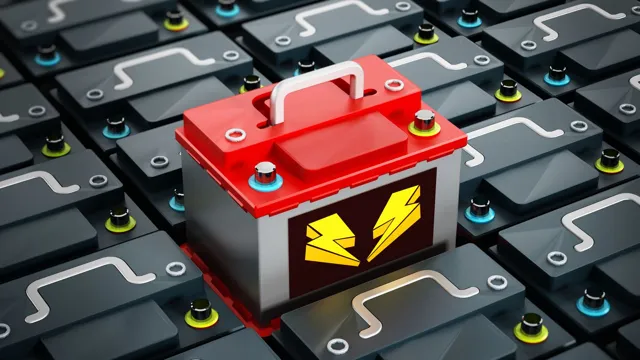
How does an electric car battery work?
Electric car batteries are the heart of electric vehicles, providing the power source for the motor to run and move the car. But how does it work? In simple terms, an electric car battery is made up of multiple “cells,” and each cell consists of a positive electrode (cathode), a negative electrode (anode), and an electrolyte solution between them. When the battery is in use, electrons flow from the negative electrode to the positive electrode, generating electricity that powers the car’s motor.
The battery’s ability to store and deliver energy is measured in kilowatt-hours (kWh), with most electric cars having a battery capacity between 30-100 kWh. Generally, electric car batteries are made using lithium-ion technology, which is efficient, lightweight, and rechargeable, making it ideal for powering electric vehicles. With advancements in battery technology, electric car batteries are becoming smaller, more affordable, and capable of longer range, making electric cars a viable alternative to their gas-guzzling counterparts.
Benefits of using an electric car as a home battery
Wondering if you can use an electric car as a home battery? You certainly can! In fact, many electric cars are now equipped with the ability to serve as a backup power source for your home. This means that in the event of a power outage, you won’t be completely powerless. Instead, you can use the energy stored in your electric car’s battery to provide power to your home appliances and devices.
Not only does this give you added peace of mind during weather events or other emergencies, but it can also help you save money on your energy bill. By storing energy in your car during off-peak hours when electricity is cheaper, you can then use that energy during peak hours when electricity is more expensive. It’s a win-win for your wallet and the environment!
Cost savings
Cost savings Have you ever thought about using your electric car as a home battery? Not only is it an environmentally friendly option, but it can also save you money on your energy bills. By charging your electric car during off-peak hours when electricity rates are lower, you can use the stored energy in your car’s battery to power your home during peak hours when electricity rates are higher. This can result in significant cost savings over time.
Plus, in the event of a power outage, your electric car can serve as a backup power source for your home. It’s a win-win situation for both your wallet and the environment. So why not consider using your electric car as a home battery and start enjoying the benefits of cost savings today?
Reduced carbon footprint
Electric cars are becoming increasingly popular, not only for their reduced carbon footprint but also for their potential use as home batteries. By connecting an electric vehicle to the home energy system, it can store excess energy generated from solar panels, wind turbines, or other renewable sources. This stored energy can then be used to power the home during peak energy demand times, reducing the reliance on the grid and lowering energy bills.
Additionally, electric vehicles can also feed back excess energy to the grid, further reducing carbon emissions and providing a source of income for the owner. Ultimately, using an electric car as a home battery not only benefits the individual but also benefits the environment, contributing to a cleaner and more sustainable future.
Challenges of using electric cars as home batteries
While it is possible to use an electric car as a home battery, it is not without its challenges. For one, the amount of energy stored in an electric car is much lower than what a standard home battery can hold. This means that it may not be sufficient for households that require a lot of power.
Additionally, discharging the car’s battery completely can significantly reduce its lifespan, making it less sustainable in the long run. Another issue is the availability of charging stations. If you use your electric car as a home battery and then need to use it for transportation, you may have trouble finding a charging station nearby.
Furthermore, using an electric car as a home battery can be expensive. While electric cars are becoming more affordable, they are still typically more expensive than traditional home batteries. Overall, while using an electric car as a home battery is a potential solution to energy storage, it may not be the most practical choice for everyone.
Battery degradation
Battery degradation is one of the biggest challenges of using electric cars as home batteries. Over time, the battery’s capacity decreases, making it less efficient in storing and supplying energy. This is due to the chemical reactions that occur inside the battery during charging and discharging cycles, which cause wear and tear on the battery’s electrodes.
Additionally, extreme temperatures can also accelerate the degradation process. However, this doesn’t mean that electric cars are not suitable for use as home batteries. With proper monitoring and maintenance, the batteries can still provide reliable and cost-effective energy storage solutions.
It’s like taking care of a newly planted tree – with regular pruning and nourishment, it can grow healthy and strong, providing shade and fruits for years to come.
Limited storage capacity
Despite their many benefits, electric cars have a limited storage capacity, making them less effective as home batteries. This presents a challenge for households that want to use their electric cars as backup power sources during emergencies or to reduce their energy costs. The small size of electric car batteries and their limited range mean that they may not be able to provide enough power to meet the needs of a typical household.
Moreover, using electric cars as home batteries would require frequent discharging and recharging of the batteries, which could shorten their lifespan and affect their performance. While some electric cars have the ability to provide power to the grid, this feature is currently only available on a limited basis. Overall, while electric cars hold promise as a means of reducing energy consumption and lowering greenhouse gas emissions, their limited storage capacity presents a challenge that will need to be overcome in order to make them a practical source of backup power for households.
How to use an electric car as a home battery
Are you wondering if you can use your electric car as a home battery? The answer is yes, you can! Thanks to vehicle-to-home (V2H) technology, electric cars can be used as a source of electricity during power outages. Essentially, this technology allows the car’s battery to discharge its stored energy and transfer it to your home via a charger. It’s important to note that not all electric car models come equipped with V2H technology, so it’s essential to check first.
Another consideration is the size of your car’s battery and how much power your home requires. A large car battery may be able to power your home for a couple of days, but it’s not a long-term solution. Ultimately, using an electric car as a home battery can be a useful backup for emergencies, but it’s still important to have a reliable, sustainable energy source for your home.
Conclusion
In conclusion, the idea of using an electric car as a home battery is a tempting prospect, but unfortunately, it’s not as practical as we might hope. While sophisticated chargers and battery systems can technically allow for the two-way flow of electricity between a car and a home, for most people, the limited capacity of an electric car battery simply isn’t large enough to power a whole home. Plus, the wear and tear on the car battery from this kind of usage could lead to decreased car performance in the long run.
Ultimately, it seems like we’ll need to wait for advances in battery technology before we can truly unlock the potential of electric cars as versatile power sources.”
FAQs
How can an electric car be used as a home battery?
An electric car can be used as a home battery through vehicle-to-grid (V2G) technology, which allows the car’s battery to discharge its stored energy to power the home during peak demand or blackouts.
Is it cost-effective to use an electric car as a home battery?
It can be cost-effective in the long run, as electric cars and home batteries both store energy, but an electric car can also provide transportation. However, it may require a larger initial investment and some additional equipment for V2G technology.
Can any electric car be used as a home battery?
Not all electric cars are equipped with V2G technology, so it’s important to check with the manufacturer or dealer before purchasing to see if the car is compatible.
Are there any drawbacks to using an electric car as a home battery?
Using an electric car as a home battery may reduce the driving range of the vehicle, and it may also require frequent charging to maintain both the car’s battery and the home’s power needs. Additionally, some electric utilities may not yet offer V2G technology in certain areas.
